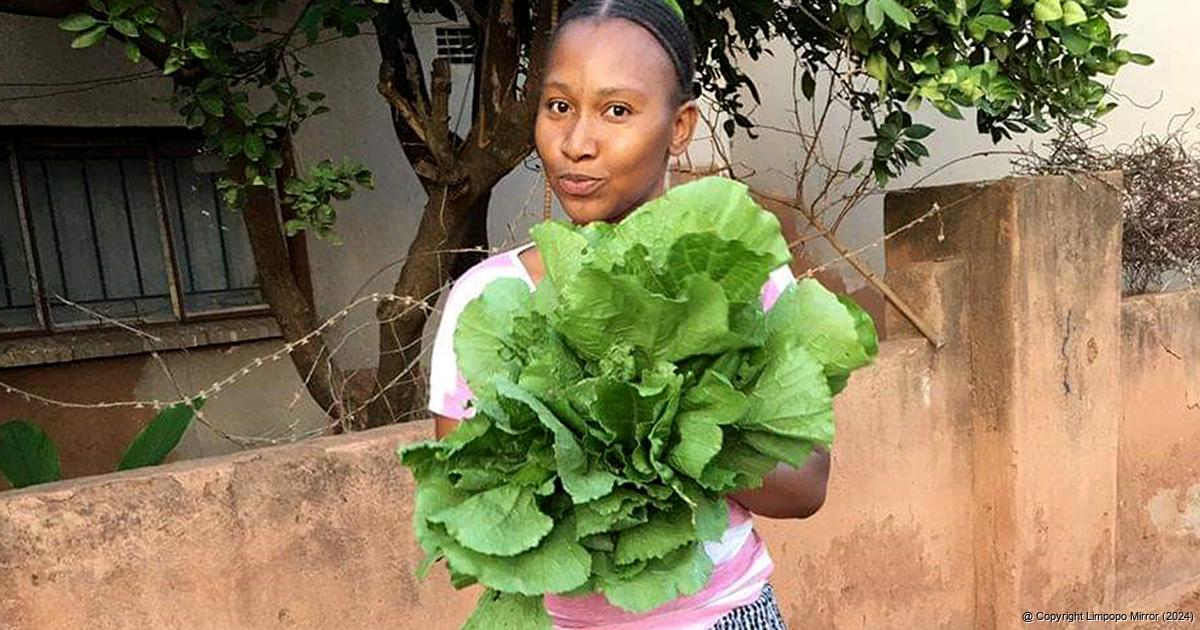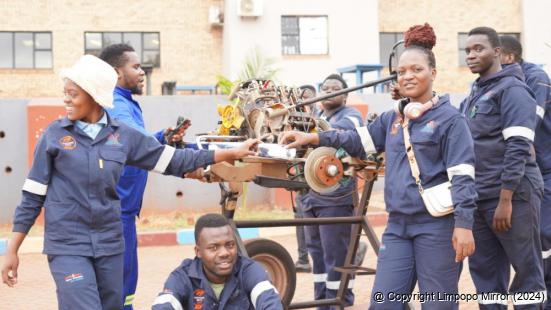

ADVERTISEMENT:

Edith Magwira started farming on a small piece of land, but she has already bought 25 hectares of land, so that she can be a full-time farmer. Photo supplied.
More women should look at becoming farmers
Following in the footsteps of her grandmother, Edith Magwira decided to venture into crop farming on a small piece of land that she was offered by a local school in Musina. This despite her studying for financial management at a local TVET college.
According to Edith, the idea of farming came to her during the Covid-19 period when movement was restricted. “When I was still a teen, we used to visit my grandmother in the rural areas. My grandmother would take us to the fields where she practised farming,” she said.
The 27-year-old Edith said that she realised she could use the farming skills her grandmother had taught her. She started on a small scale on the piece of land made available to her by the school. She planted okra, spinach and watermelons, which she sold to local retailers.
The success of her small farming venture prompted Edith to buy a 25-hectare piece of land near Musina. The land still needs to be developed, and she will need to fence it off and sink a borehole.
Edith is very realistic about the fact that for a woman to succeed in this industry where men dominate is not easy. “As someone who is still new in this business, I usually go out sourcing equipment, and some men take advantage of that. Some men try to abuse me. This is not good at all,” she said.
Edith sees no difference between a male and a female farmer. “As long as women put in maximum effort, they will reap their reward,” she said. She encouraged more women to become farmers, especially those who struggle to secure formal employment.
Date:24 December 2022
By: Bernard Chiguvare
Bernard Chiguvare is a Zimbabwean-born journalist. He writes mainly for the online publication, Groundup.
Read: 2765

ADVERTISEMENT

ADVERTISEMENT:

Sponsored Content
Embracing the Future with Artisanal Skills
As South Africa continues its pursuit of economic growth and industrial sustainability, attention is being drawn to a crucial yet often overlooked segment of the workforce: artisans. Acknowledging this need, the Manufacturing, Engineering and Related Services Sector Education and Training Authority (merSETA) has become a major role player in the Decade of the Artisan (DoA) initiative of the Department of Higher Education and Training (DHET).

ADVERTISEMENT:

Recent Articles
-

New Premier Hotel a testimony of what women leaders can achieve
07 September 2024 -

Seven years of promises but still no stadium at Waterval
07 September 2024 -

Cyria calling on music lovers to buy Royal Heritage tickets
07 September 2024 By Kaizer Nengovhela -

AG’s findings show the good, bad and downright ugly in Vhembe’s municipalities
07 September 2024 By Anton van Zyl -

Sinthumulekutama ladies aim for promotion
06 September 2024 By Kaizer Nengovhela

ADVERTISEMENT

Popular Articles
-

Vhavenda princess' case is set to break traditional stereotypes
03 August 2024 By Anton van Zyl -

Death of popular Venda soapie Muvhango comes as a shock
13 July 2024 By Victor Mukwevho -

Hillary Construction to rehabilitate old N1 through Musina
22 August 2024 -

Man dies in head-on collision near Gogobole
01 August 2024 By Kaizer Nengovhela -

MMSEZ pushes for township development
12 July 2024 By Andries van Zyl -

Sheryl chosen again to represent Team SA at Paris Paralympics
12 July 2024 By Andries van Zyl -

From engineering dreams to fashion industry icon
25 August 2024 By Maanda Bele


